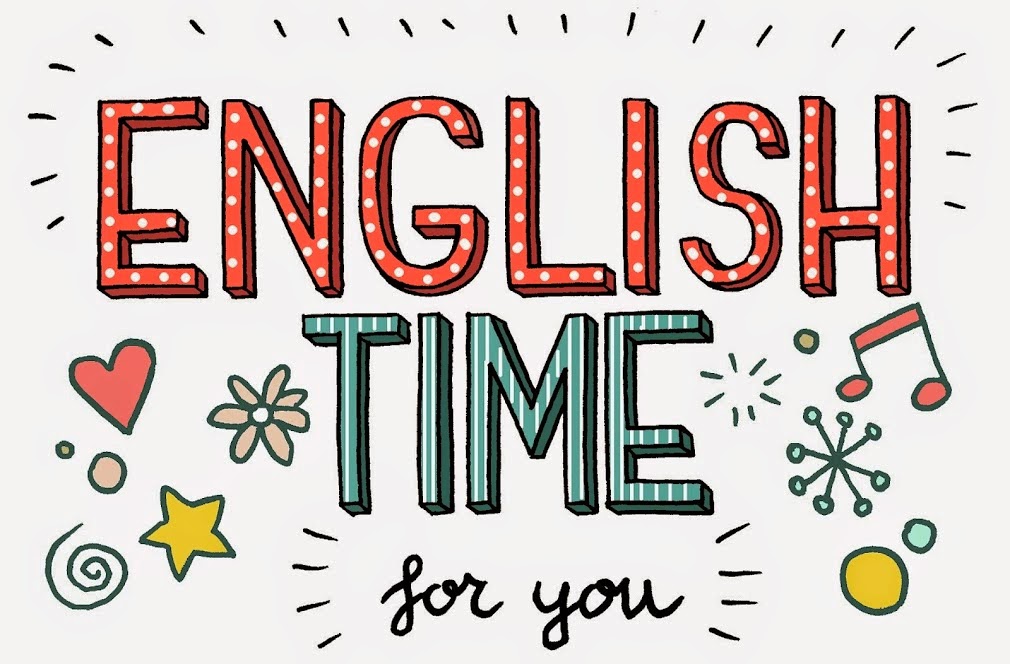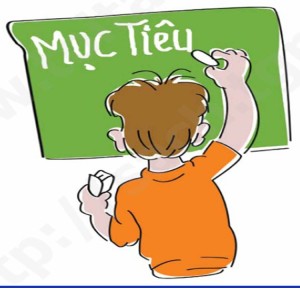.jpg)
Bài tập tiếng Anh lớp 12 unit 10 có đáp án
Cùng English4u làm bài tập tiếng Anh lớp 12 unit 10 kèm đáp án dưới đây nhé. Các dạng bài theo unit trong sách giáo khoa sẽ giúp các em tổng hợp lại kiến thức đã học và chuẩn bị tốt cho kỳ thi đại học sắp tới.
Cùng English4u làm bài tập tiếng Anh lớp 12 unit 10 kèm đáp án dưới đây nhé. Các dạng bài theo unit trong sách giáo khoa sẽ giúp các em tổng hợp lại kiến thức đã học và chuẩn bị tốt cho kỳ thi đại học sắp tới.

Luyện tập tiếng Anh lớp 12
Bài tập tiếng Anh lớp 12 kèm đáp án
UNIT 10: ENDANGERED SPECIES
I. Choose the vowel sound for each of the words below.
/æ/ /eɪ/ /ɪ/ /aɪ/ /æ/ /eɪ/ /ɪ/ /aɪ/
|
1. endanger |
11. span |
|
2. extinct |
12. enact |
|
3. rhinoceros |
13. panda |
|
4. dam |
14. fertile |
|
5. classify |
15. wild |
|
6. identify |
16. gorilla |
|
7. habitat |
17. diversity |
|
8. drainage |
18. urbanization |
|
9. damage |
19. crisis |
|
10. primary |
20. natural |
II. Complete the passage with the correct form of the word in the box.
|
biology ability destroy extinct appear endanger accelerate nature exploit evolve native consume |
Over 8300 plant species and 7200 animal species around the globe are threatened with (1)……………., and many thousands more become extinct each year before biologists can identify them. The primary causes of species extinction or (2)…………….are habitat destruction, commercial (3)…………...
(such as plant collecting, hunting, and trade in animal parts), damage caused by (4)……………. Plants and animals introduced into an area, and pollution. Of these causes, direct habitat (5)…………….threatens the greatest number of species.
Extinction is normal process in the course of (6)……………. . Species have slowly evolved and disappeared throughout geologic time as the result of climate changes and the (7)…………….to adapt to survive competition and predation. Since the 1600s, however, the rate of extinction has (8)……………. rapidly because of human population growth and human resource (9)………….. Today, most of the world’s habitats are changing faster than most species can adapt to such changes through evolution, or (10)…………….selection. The current global extinction rate is exponentially greater than the background extinction rate. Many (11)…………….believe that we are in the middle of the greatest mass extinction episode since the (12)…………….of the dinosaurs 65 million years ago.
III. Complete the sentences with may or might (not) followed by the correct forms of the verb in brackets. If both may and might are possible, indicate this.
1. The seeds from the plant…………….up to 20 centimeters in length. (grow)
2. Years ago children…………….down mines at the age of six. (send)
3. The painting…………….a masterpiece, but you’ve got to admit that the colours are striking. (be)
4. Do you think Jean…………….the report by now? (complete)
5. The planet Venus…………….clearly in the night sky during this month. (see)
6. The race had to be stopped because the oil on the track…………….an accident. (cause)
7. Is that John’s car that just stopped? He…………….for us. (wait)
8. She…………….very gracefully, but she had a lot of energy and enthusiasm. (dance)
9. As little as 50 years ago a worker still…………….for being ill. (dismiss)
10. I’ve heard that the newsagent’s is losing a lot of money and it……………. down. (close)
11. His maths…………….by the time the exam comes round. (improve)
12. Exceeding the stated dose…………….drowsiness. (cause)
13. ‘Ann looks exhausted’ ‘I suppose she……………. .’ (run)
14. During the was, the police…………….you for criticizing the King. (arrest)
15. Gary was in a strange mood yesterday. He…………….very well. (feel)
IV. Underline the best answer from each group in italics.
1. Bookings need/ must be made at least seven days before departure.
2. In most developed countries, people mustn’t / don’t need to boil water before they drink it.
3. You needn’t/ mustn’t go on the beach when the tide’s coming in. It’s very dangerous.
4. I often have to/ must work at the weekend to get everything done.
5. Changes in technology mustn’t/ needn’t be a problem, but could be seen as a great opportunity.
6. We’ve been told that we don’t have to/ mustn’t be at work until 10.00 tomorrow.
7. When you have time, we must/ have to get together for a weekend.
8. We mustn’t/ needn’t allow our speed of production to drop.
9. As you worked late yesterday you needn’t/ mustn’t come until 10.00 tomorrow morning.
10. Employees will have to/ have got to accept the new conditions or be dismissed.
11. Of course the first thing I did was to call the police and I mustn’t/ didn’t have to wait very long for them to get there.
12. You mustn’t/ needn’t use the office phone for private calls.
13. You don’t need to/ mustn’t have a university degree to become a police officer.
14. Nowadays it needn’t/ mustn’t cost a fortune to own a powerful computer
15. I don’t have to/ mustn’t remind you that we are competing with two other companies.
V. Complete the following sentences with a suitable form of can, could, be able, may, might, must, need, have to and the verb in brackets.
1. I feel absolutely awful. I think I…………….(have) flu.
2. I used to…………….(run) for miles. Now I…………….(not even run) round the block!
3. Which bus do you think you…………….(leave) your bag on?
4. I…………….(swim) really well when I was six years old.
5. Although she had a broken leg, she…………….(swim) to the shore.
6. We…………….(rush) after all. The plane was over an hour late taking off.
7. You…………….(have) a special licence to drive lorries weighing over two tons.
8. Billy, come away from that dog. It…………….(bite) you.
9. Unlike many other countries, young men in Britain…………….(not do)
compulsory military service as it was abolished in 1957.
10. At my last job, we…………….(make) any personal phone calls from the office. We…………….(use) the public call box in the street!
11. Smoking…………….(cause) all sorts of physical problems.
12. I…………….(phone) Steve when I get home. I said I’d call him last night, but I forgot.
13. Jane’s not completely deaf but she…………….(not hear) properly for long time.
14. Guests…………….(leave) their valuables in the hotel safe if they wish.
15. My word! It…………….(take) you ages to write all this. There are more than 2000 pages!
VI. Where necessary, suggest a correction for these sentences, or put a tick (Ѵ).
1. You needn’t to worry about losing your jobs.
2. I think I saw her go out, so she mightn’t be at home.
3. We needn’t allow our competitors to gain an advantage over us.
4. It’s snowing heavily in Scotland so it can take Hugh a long time to get there.
5. The present financial difficulties mustn’t mean that people will lose their jobs.
6. It mightn’t be true. There must be some mistake.
7. You mustn’t work at weekends for the moment.
8. You needn’t cancel your holiday plans.
9. If we don’t get to the market soon they can’t have any flowers left. They will all have been sold.
10. I need hardly to tell you how importand it is that we get this order.
VII. Choose the best answers.
1. I’ve spent most of the morning to fix my washing machine, but I seem to have made it worse. – You ought to ask/ may ask/ ought to have asked me to come over and take a look at it.
2. The taxi needs to/ should/ would be here in a couple of minutes. We’d better/ ‘ve better/ ‘d better to get ready to go.
3. My daughter wouldn’t/ won’t/ may not eat carrots. She hates the taste of them. I don’t have to/ ‘m not able to/ can’t think of any way of getting her to eat them. But to tell the truth, I could/ would/ used to hate them when I was young, too.
4. We’re completely lost! I’m not able to/ can’t/ mustn’t find any of the street names around here on the map. – We must/ have got to/ can have taken the wrong turning at the traffic lights.
5. I was beginning to be concerned that I won’t/ mustn’t/ wouldn’t get the station for my train. But I didn’t need/ mustn’t/ shouldn’t worry; Collin turned up in good time to give me a lift.
6. Most head teachers today feel that parents need/ should/ had better play more active part in the running of schools. There was a time when parents would/ will/ should put a lot of effort into raising money for school projects, but those days seems to have gone.
7. Preliminary research suggests that the bones must/ have to/ used to be at least 100000 years old, but they would/ could/ can be considerably older than that.
8. Apparently, in the future, airline passengers will be able to/ can/ could send and receive email messages without moving from their seats. Of course, by the time is common, we can/ must/ might have started using even more efficient ways of communicating.
9. Both candidates for the job were very strong and it was hard to choose between them. I certainly couldn’t/ mustn’t/ had to have decided which one to appoint. But fortunately, we hadn’t got to/ didn’t have to/ mustn’t make a final decision; the manager found enough money to allow us to appoint both of them.
10. You needn’t/ don’t need to/ mustn’t be fit to play badminton well. It can/ is able to/ could be played by anyone who is reasonably fit and who has good sense of timing.
VIII. Write new sentences with a similar meaning.
1. It is necessary to do all of this photocopying before lunchtime.
All of this photocopying has…………………………………………………
2. It’s possible Louise is waiting for us at the airport.
Louise may……………………………………………………………………..
3. May be Mathew forgot all about it.
Mathew might………………………………………………………………….
4. I had the chance to do a parachute jump, but I was too scared.
I could…………………………………………………………………………
5. It is not necessary for anyone to know who paid the ransom to the kidnappers
No one need……………………………………………………………………
6. It may be necessary for us to cancel our holiday because my mother is ill.
We may………………………………………………………………………
7. It is necessary to extend the college to accommodate the growing number of students.
The college has…………………………………………………………………
8. I’m absolutely sure that they weren’t playing in this weather.
They can’t………………………………………………………………………
9. It wasn’t necessary for you to go to so much trouble on my behalf.
You needn’t……………………………………………………………………..
10. A heavy shower prevented them from finishing their game of tennis.
They were……………………………………………………………………...

Bài tập tiếng Anh lớp 12 kèm đáp án chuẩn
ĐÁP ÁN:
I.
|
1. endanger /eɪ/ |
6. identify /ai/ |
11. span /æ/ |
16. gorilla /ɪ/ |
|
2. extinct /ɪ/ |
7. habitat /æ/ |
12. enact /æ/ |
17. diversity /ai/ |
|
3. rhinoceros /aɪ/ |
8. drainage /eɪ/ |
13. panda /æ/ |
18. urbanization /ɪ/ |
|
4. dam /æ/ |
9. damage /æ/ |
14. fertile /ai/ |
19. crisis /ai/ |
|
5. classify /æ/ |
10. primary /ai/ |
15. wild /ai/ |
20. natural /æ/ |
II.
|
1. extinction |
2. endangerment |
3. exploitation |
4. nonnative |
|
5. destruction |
6. evolution |
7. inability |
8. accelerated |
|
9. consumption |
10. natural |
11. biologists |
12. disappearance |
III.
1. may grow
2. might be sent
3. may/ might not be
4. may/ might have completed
5. may be seen
6. might have caused
7. may/ might be waiting
8. might/ may not have danced
9. might be dismissed (might have been dismissed is also possible)
10. may/ might be closing (may/ might close is also possible)
11. may/ might have improved
12. may cause
13. may/ might have been running
14. might arrest
15. may/ might not have been feeling (may/ might not have felt is also possible)
IV.
|
1. must |
5. needn’t |
9. needn’t |
13. don’t need to |
|
2. don’t |
6. don’t have to |
10. have to |
14. needn’t |
|
3. mustn’t |
7. must |
11. didn’t have to |
15. don’t have to |
|
4. have to |
8. mustn’t |
12. mustn’t |
|
V.
|
1. must have |
9. don’t have to do/ don’t need to do/ needn’t do |
|
2. be able to run – can’t even run |
10. couldn’t make – had to use |
|
3. might have left |
11. can cause |
|
4. could swim |
12. must phone |
|
5. was able to swim |
13. hasn’t been able to bear |
|
6. needn’t have rushed |
14. may leave |
|
7. must/ have to/ need to have |
15. must have taken |
|
8. may/ might bite |
|
VI.
|
1. needn’t worry |
6. can’t/ couldn’t |
|
2. Ѵ |
7. don’t have to/ don’t need to |
|
3. mustn’t |
8. Ѵ |
|
4. may/ might/ could |
9. may not/ might not |
|
5. needn’t |
10. need hardly tell |
VII.
|
1. ought to ask |
6. should - would |
|
2. ‘should - ’d better |
7. must - could |
|
3. won’t – can – used to |
8. will be able to - might |
|
4. can’t - must |
9. couldn’t – didn’t have to |
|
5. wouldn’t – didn’t need |
10. don’t need to - can |
VIII.
1. All of this photocopying has got to be done/ has to be done before lunchtime.
2. Louise may be waiting for us at the airport.
3. Mathew might have forgotten all about it.
4. I could have done a parachute jump, but I was too scared.
5. No one need know who paid the random to the kidnappers.
6. We may have to cancel our holiday because my mother is ill.
7. The college has to be extended to accommodate the growing number of students.
8. They can’t (possibly) have been playing in this weather.
9. You needn’t have gone to so much trouble on my behalf.
10. They were unable to finish their game of tennis because of a heavy shower.
Các em có thể download bản đầy đủ tại đây về máy tính của mình để có thể sử dụng và luyện tập tại nhà khi cần nhé.
Bài viết cùng chuyên mục
- Bài tập tiếng Anh lớp 12 unit 16 có đáp án 22/09
- Bài tập tiếng Anh lớp 12 unit 15 có đáp án 21/09
- Bài tập tiếng Anh lớp 12 unit 14 có đáp án 20/09
- Bài tập tiếng Anh lớp 12 unit 13 có đáp án 20/09
- Bài tập tiếng Anh lớp 12 unit 12 có đáp án 19/09
- Bài tập tiếng Anh lớp 12 unit 11 có đáp án 16/09
- Bài tập tiếng Anh lớp 12 unit 9 có đáp án 14/09
- Bài tập tiếng Anh lớp 12 unit 8 có đáp án 12/09
- Bài tập tiếng Anh lớp 12 unit 7 có đáp án 10/09
- Bài tập tiếng Anh lớp 12 unit 6 có đáp án 10/09






.jpg)


.png)






